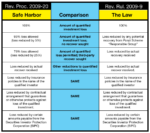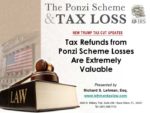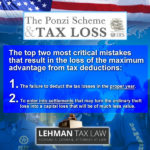Tax planning techniques for the foreign real estate investor in the United States
Question: Can a Foreign Investor use corporate entities to avoid the U.S. estate tax and the Branch Tax and pay only a single tax on gain from U.S. real estate?
Answer:
Yes, the Tiered Corporation is a typical investment entity for Foreign Investors and has the capability of meeting each and every one of the tax objectives discussed. A Tiered corporate structure consists of a corporation organized in any jurisdiction outside of the United States that is owned by the Foreign Investor[s]. The Foreign Corporation can then own 100% of the shares of a U.S. corporation that will own the real estate.
This insures that if the Foreign Investor wishes to transfer his or her shares as a gift or would die owning shares in a Foreign Corporation (which indirectly ultimately owned U.S. real estate) there would be no gift or estate taxation on the transaction.
At the same time, the Tiered Corporate Structure prevents the Foreign Corporation holding company from being exposed to the Branch Tax.
This is because the second entity in the tier is a U.S. corporation formed in the U.S. These U.S. corporations are subject to the 35% maximum taxation on their operating income.
Question: Can a Foreign Investor in U.S. real estate receive interest payments from loans to finance U.S. real estate investments free of all U.S. income taxes and estate taxes?
Answer:
Yes, if a foreign investor receives interest income from a United States corporation or a United States person, or any United States entity investing in real estate, the general rule will be a 30% withholding tax on that interest.
However, in order to attract foreign capital in the form of loans and not equity, a unique exemption from the Federal income tax exists on a certain type of interest income paid to a Foreign Corporate or Foreign Individual Investor (the “Lender”). This tax advantage is known as the Portfolio Interest Exemption. This exemption permits interest on U.S. debt instruments to be exempt from the gross basis tax if the interest income is payable to Foreign Persons under certain circumstances.
To take advantage of this, the Foreign Investor must limit his or her equity ownership in the U.S. real estate investment.
The portfolio debt interest payments are not only excluded from the foreign Lenders U.S. taxable income, in addition the Foreign Person that owns the Portfolio Obligation will also not be subject to U.S. estate taxation if they die owning the Obligation. Therefore, a Foreign Individual Investor that holds only a Portfolio Interest Obligation in a real estate investment does not need any other estate tax planning.
Question: Can an Investor invest in U.S. real estate and pay no U.S. tax when the U.S. real estate is sold.
Answer:
Yes, there is a unique aspect to the U.S. tax laws when it comes to investing in U.S. real estate. If a foreign corporation invests directly in United States real estate and if the foreign shareholder can sell the shares of his or her foreign corporate stock to a buyer instead of the real estate, the shares of that Foreign Corporation that owns U.S. real estate directly can be sold by the Foreign Investor for no tax whatsoever.
However, in that case the buyer will acquire a corporation that owns the real estate. This means the buyer will own the real estate at the original cost and if the Foreign Corporation that was purchased ever sells that real estate, then there will be a tax on the Foreign Corporation when it sells the real estate.
ASK YOUR QUESTION:






